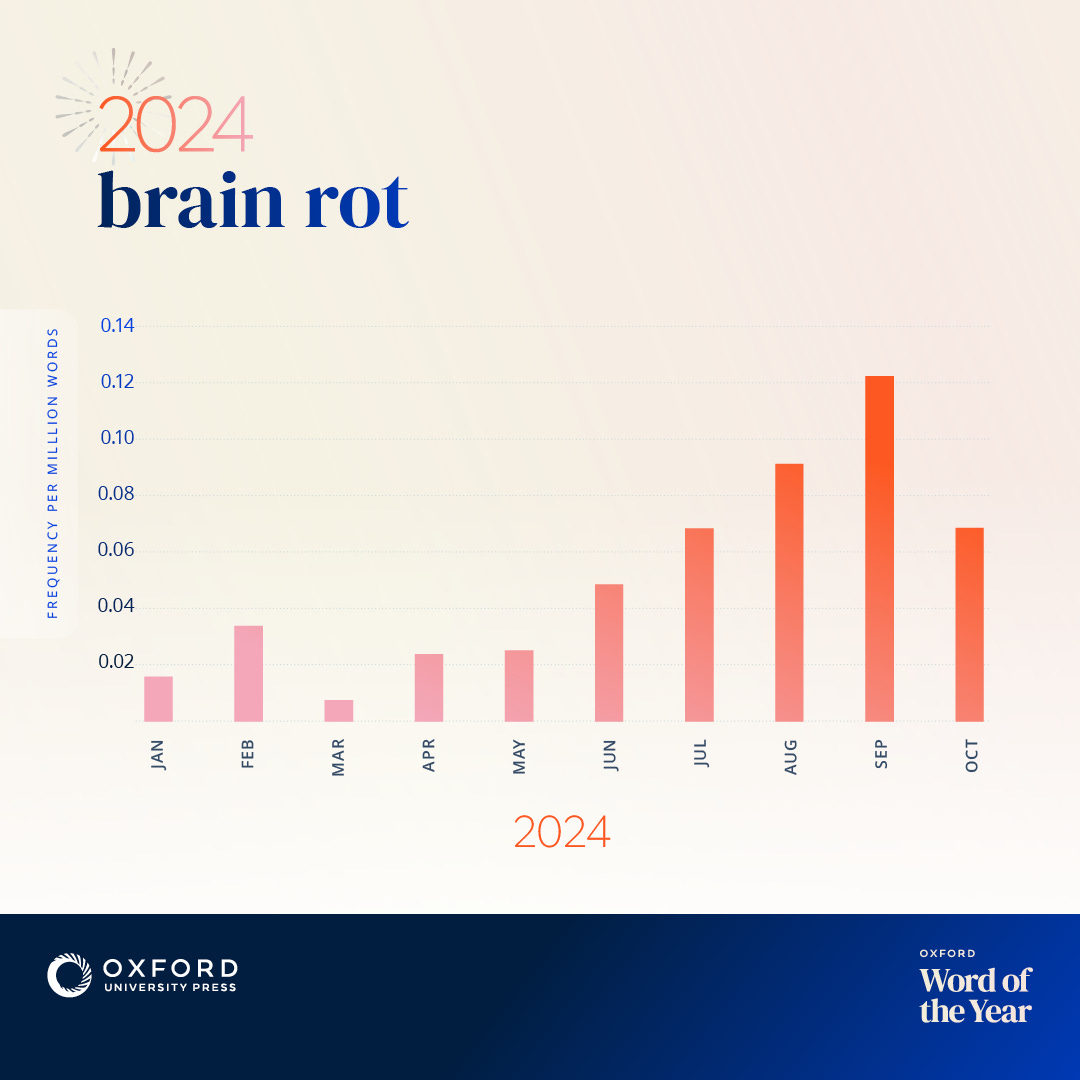‘Brain rot’ is defined as “the supposed deterioration of a person’s mental or intellectual state, especially viewed as the result of overconsumption of material (now particularly online content) considered to be trivial or unchallenging,” and it’s Oxford’s word of the year.
The other words under consideration were demure, dynamic pricing, lore, romantasy, and slop. It’s notable that brain rot’s chief concern is the overconsumption of online content, and to understand the other words on the shortlist, one would have to be spending quite a bit of time on the internet.
Demure, for instance, skyrocketed in usage after a viral TikTok. Lore, similarly, is on the shortlist due to its association with online personalities and obsessive fandoms who have followed their faves since “before they were famous” and thus know all their lore.
Romantasy is a publishing portmanteau for romance and fantasy, and slop, in its usage on this list, refers specifically to AI-generated material or the inaccurate and low quality results that can be produced by AI like ChatGPT.
It’s obvious that language is evolving and regenerating to reflect the impressive amount of time we spend using machines to entertain ourselves and communicate with each other, but the subplot is all the ways in which pretty much everything is getting a little worse.
Romantasy is a place to escape the real horrors of dating, slop is a substitute for engaging intellectually with the world, demure rose in prominence due to a video meant to remind people how to dress and act in work settings, and dynamic pricing, which might seem like an outcast in this group, is a fitting example of the ways in which technology is being used to squeeze more money out of consumers while simultaneously making the experience worse.
While this general decline is concerning, Casper Grathwohl, president of Oxford Languages, thinks the kids might be alright. He noted that “[Gen Z and Gen Alpha] have amplified the expression [brain rot] through social media channels, the very place said to cause [it]. It demonstrates a somewhat cheeky self-awareness in the younger generations about the harmful impact of social media that they’ve inherited.”
So while these words would seem to reflect a world of decline, I also see cause for hope. The transformation of societal structures like language and communication don’t happen in a vacuum, and one thing younger generations have never been afraid of is antagonizing and implicating their elders. Rather than a cry for help, the embrace of brain rot might be one of defiance and fun. It might be saying “Sure, we’re pigs, but we’re swimming in your shit, and we’re going to make the most of it.”



Like that you are optimistic about our use of language